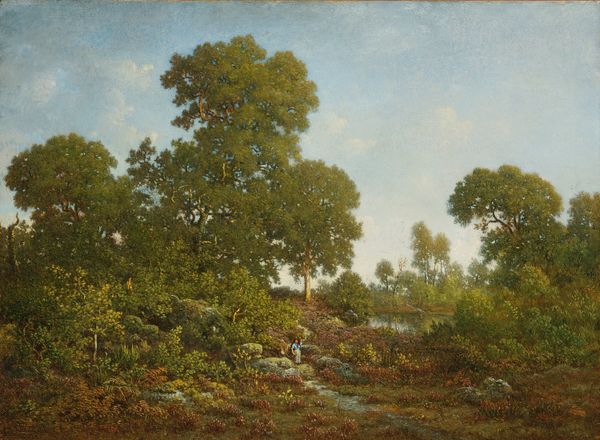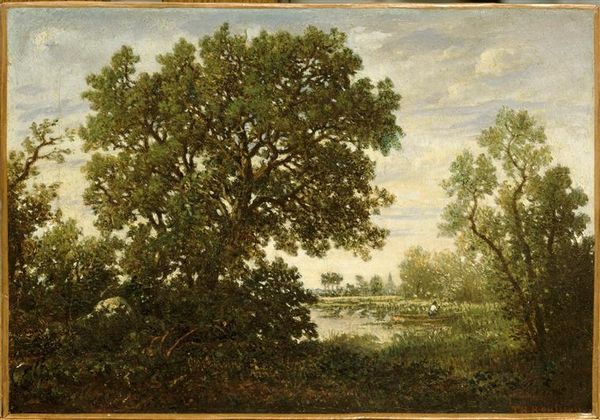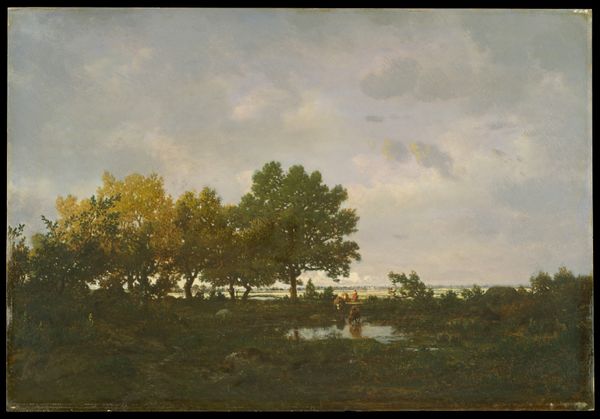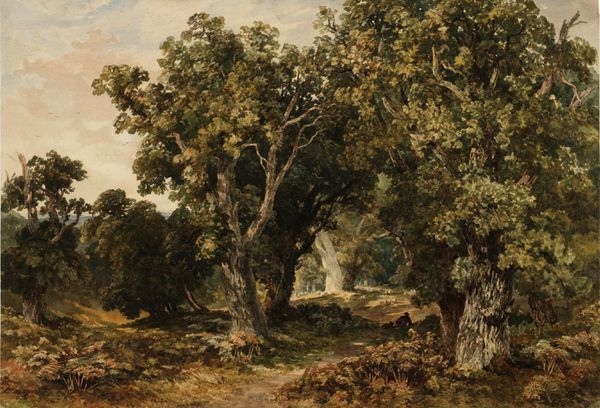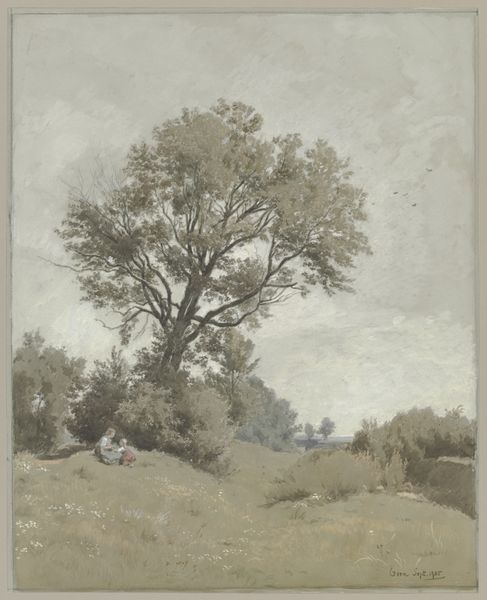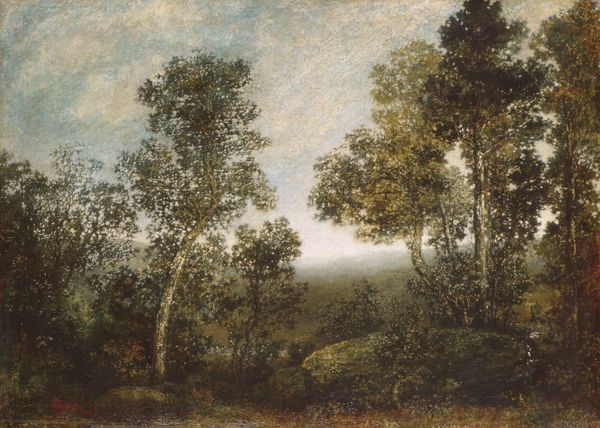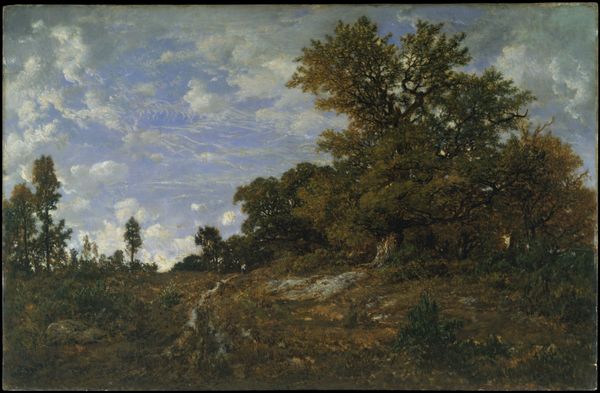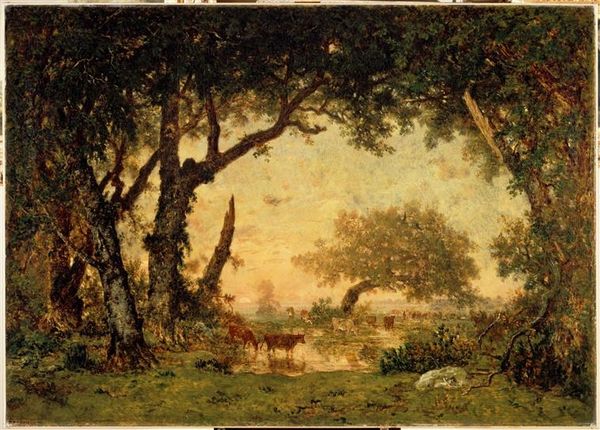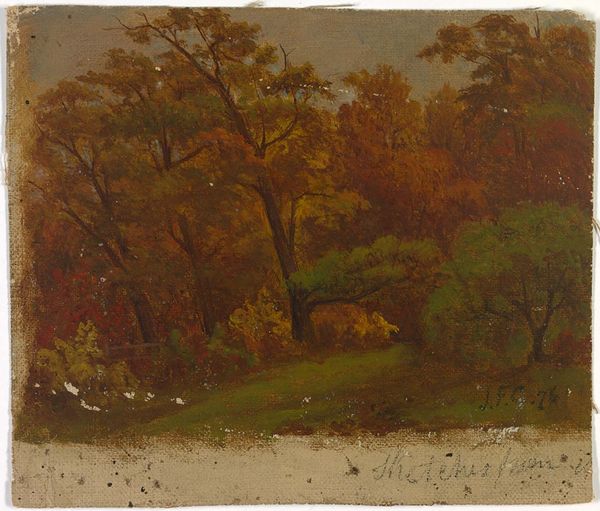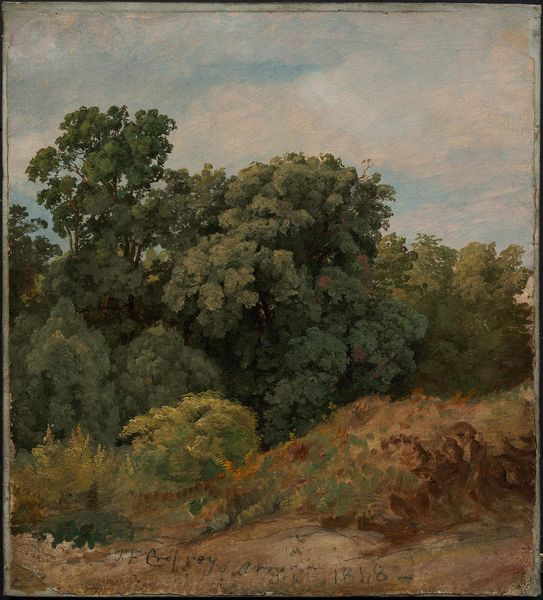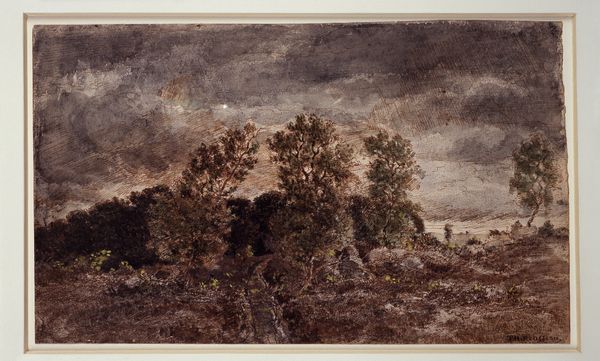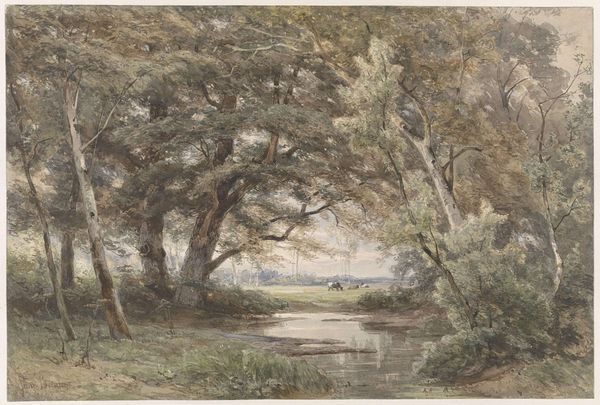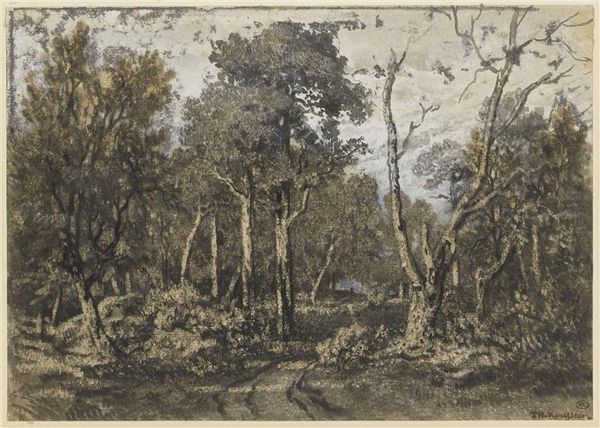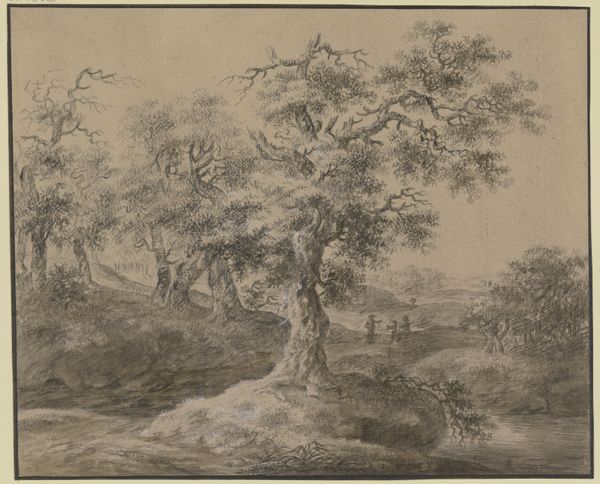
painting, plein-air, oil-paint
#
tree
#
painting
#
plein-air
#
oil-paint
#
landscape
#
oil painting
#
forest
#
plant
#
romanticism
#
watercolor
#
realism
Dimensions: 90 x 118 cm
Copyright: Public domain
This is Théodore Rousseau’s "The Collier’s Hut", a painting whose date is unknown, that envelops us in a dense, almost claustrophobic landscape. The eye struggles to find a focal point, caught instead in a web of tangled vegetation and earthy tones. Rousseau’s technique here seems deliberately contrary to classical ideals of clarity and order. The rough brushstrokes and lack of clear spatial hierarchy challenge traditional landscape conventions, creating a surface that emphasizes the materiality of the paint itself. This approach can be understood in the context of mid-nineteenth-century debates about realism. By eschewing idealized forms in favor of a more immediate and tactile rendering of nature, Rousseau engages with broader philosophical concerns about the relationship between representation and reality. The dense, almost impenetrable thicket becomes not just a scene, but a statement on the limits of human perception and the inherent complexity of the natural world. Through his innovative handling of paint and form, Rousseau invites us to question our assumptions about seeing and knowing.
Comments
No comments
Be the first to comment and join the conversation on the ultimate creative platform.
